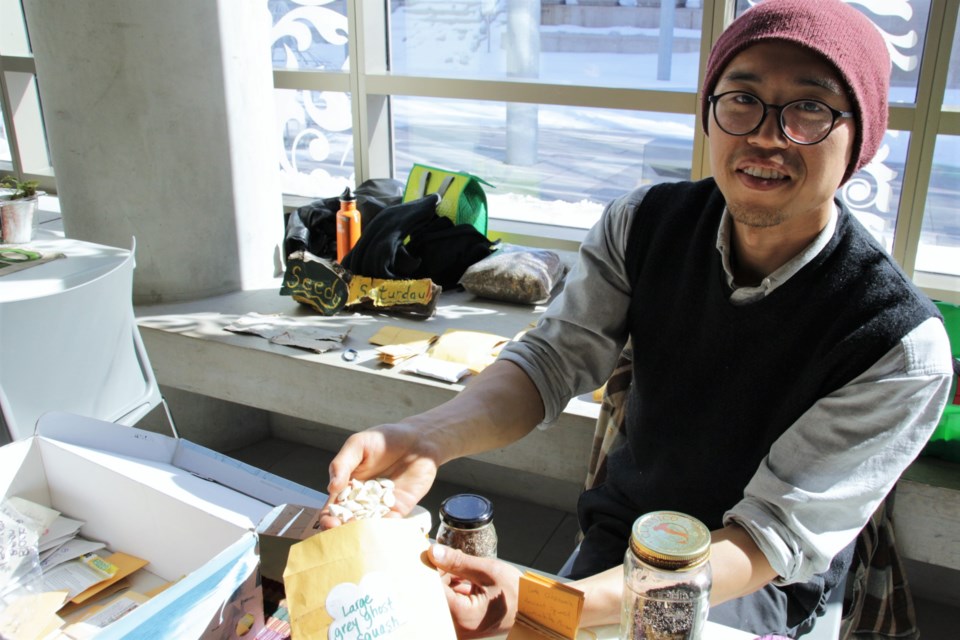Hazel McLeod was intrigued by the concept of a seed library.
Unsure what it entailed, she ventured to the 8th annual Seedy Saturday table set up at the Orillia Farmers’ Market at the Orillia Public Library.
Borrow. Plant. Save. Return.
That’s the gist of it, explained Jacob Kearey-Moreland, volunteer with the Orillia Seed Library, who was managing the table.
“You don’t have to be a member of the Orillia Library to borrow seeds,” he said. “There’s a limit to the number of seeds you can borrow per visit.”
And it’s appreciated if you harvest and return seeds the next year, added Kearey-Moreland.
That’s exactly what Matthew and Kathy Webb did.
Last year, they borrowed a handful of scarlet runner beans to plant in their backyard garden. A year later, they returned with 600 or more of what they had saved from their bumper crop.
“We’re still eating the beans,” said Kathy. “And we have frozen a bunch, so we thought we’d return the seeds to the library.”
The purpose of the seed library is to propagate seed diversity and attempt to shift monopoly from big corporations and back to local farmers and gardening enthusiasts, said Kearey-Moreland, as he explained it to McLeod.
“The industrialization of agriculture led to development of new varieties of plants,” said Kearey-Moreland, adding farmers are not allowed to save seeds from their crops, instead they’re required to buy new seeds every time. “Fewer and fewer farmers have access to seed diversity and that leads to less variety for consumers and fewer options for farmers.”
The library accepts seeds from participants, he said, answering a question by McLeod, but there is no way of making sure the seeds aren’t coming from a crop planted using seeds out of a conglomerate’s lab.
“We accept all seeds, assuming they’re not patent protected,” said Kearey-Moreland. “This is a trust-based system, and we’re relying on people to be honest.”
McLeod said she left feeling more educated about the concept of seed diversity and would definitely talk to family and friends about seed libraries.
